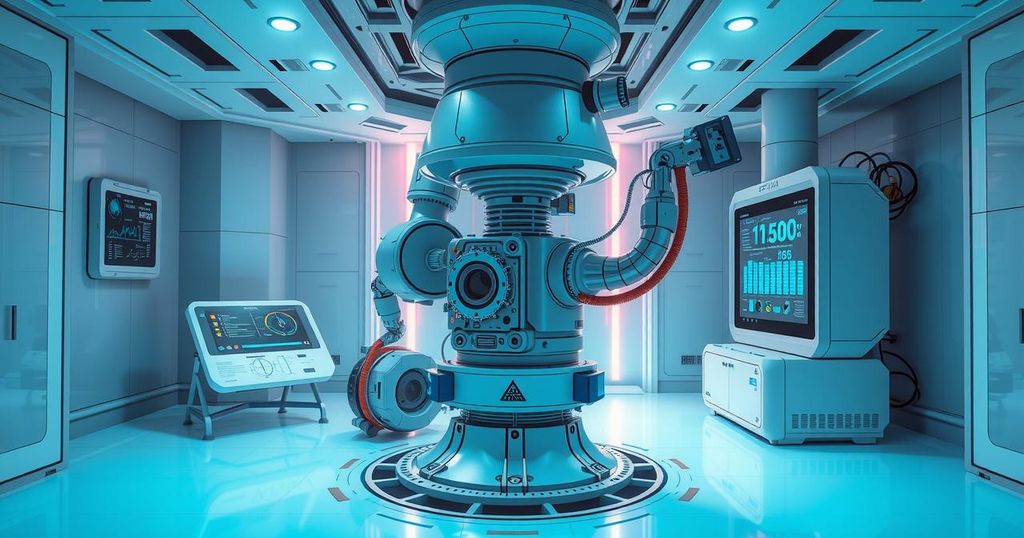AI
ARTIFICIAL INTELLIGENCE, ASIA, ATOMIC ENERGY SCIENCE AND TECHNOLOGY, BEIJING, BIDEN ADMINISTRATION, CHINA, CHINA INSTITUTE OF ATOMIC ENERGY, CIAE, ENERGY SCIENCE AND TECHNOLOGY, GEOPOLITICS, MEXICO, NATIONAL SECURITY, NORTH AMERICA, NUCLEAR WEAPONS, STEPHEN CHEN, STEPHEN CHENIN, UNITED STATES, US-CHINA RELATIONS
James O'Connor
0 Comments
China Unveils World’s First AI Nuclear Inspector
China has developed the first AI system to detect real nuclear warheads, creating potential shifts in disarmament negotiations and raising concerns about technology leaks.
In a groundbreaking development, China has unveiled the world’s first artificial intelligence system designed to identify genuine nuclear warheads from decoys. This pioneering initiative is housed within the framework of arms control verification, which experts say could significantly impact international disarmament discussions. The system, detailed in a peer-reviewed publication by the China Institute of Atomic Energy (CIAE), claims to enhance Beijing’s negotiating power amid ongoing talks that have stalled for some time.
The technology builds on a collaborative protocol that was suggested by both Chinese and American scientists over ten years ago. Yet, the road to this innovation was far from straightforward. It had to overcome several intricate challenges, notably utilizing sensitive nuclear data — something that understandably raised eyebrows. Getting the Chinese military’s approval was another hurdle, as leaders worried that such a system might inadvertently leak crucial technological details. And finally, there was the uphill task of convincing other nations, especially the U.S., to move past what some have called outdated verification methods from the Cold War.
As of now, the team from CIAE has successfully navigated the first obstacle by creating the AI system. However, details regarding the actual data used remain confidential. In their paper published in Atomic Energy Science and Technology, the researchers acknowledged the classified nature of nuclear warhead specifications, indicating they won’t disclose specific data just yet, citing security concerns.
The introduction of this AI system is stirring a mix of excitement and apprehension. On one hand, it signifies a significant step forward in the complex world of arms control, yet it also raises questions about the implications of using AI for such sensitive verification tasks. The conversation around AI’s growing role in managing weapons of mass destruction has only begun, and reactions from the international community will be crucial as they grapple with this new paradigm.
China’s development of an AI system to detect nuclear warheads represents an unprecedented leap in arms control technology. While there are promising hints at bolstering disarmament discussions, there remain serious concerns regarding confidentiality and the willingness of other countries to adjust their verification strategies. The future of this technology will rely heavily on its acceptance and the interplay of trust among global powers.
Original Source: www.scmp.com




Post Comment